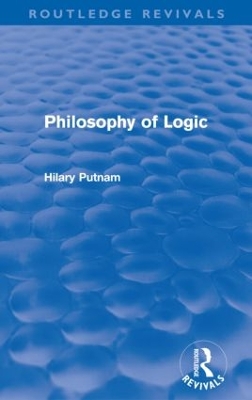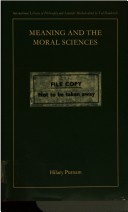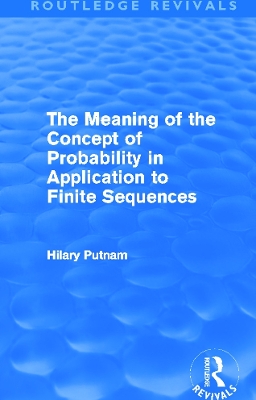Routledge Revivals
3 total works
First published in 1971, Professor Putnam's essay concerns itself with the ontological problem in the philosophy of logic and mathematics - that is, the issue of whether the abstract entities spoken of in logic and mathematics really exist. He also deals with the question of whether or not reference to these abstract entities is really indispensible in logic and whether it is necessary in physical science in general.
First published in 1978, this reissue presents a seminal philosophical work by professor Putnam, in which he puts forward a conception of knowledge which makes ethics, practical knowledge and non-mathematic parts of the social sciences just as much parts of 'knowledge' as the sciences themselves. He also rejects the idea that knowledge can be demarcated from non-knowledge by the fact that the former alone adheres to 'the scientific method'.
The first part of the book consists of Professor Putnam's John Locke lectures, delivered at the University of Oxford in 1976, offering a detailed examination of a 'physicalist' theory of reference against a background of the works of Tarski, Carnap, Popper, Hempel and Kant. The analysis then extends to notions of truth, the character of linguistic enquiry and social scientific enquiry in general, interconnecting with the great metaphysical problem of realism, the nature of language and reference, and the character of ourselves.
First published in 1990, this is a reissue of Professor Hilary Putnam's dissertation thesis, written in 1951, which concerns itself with The Meaning of the Concept of Probability in Application to Finite Sequences and the problems of the deductive justification for induction. Written under the direction of Putnam's mentor, Hans Reichenbach, the book considers Reichenbach's idealization of very long finite sequences as infinite sequences and the bearing this has upon Reichenbach's pragmatic vindication of induction.


